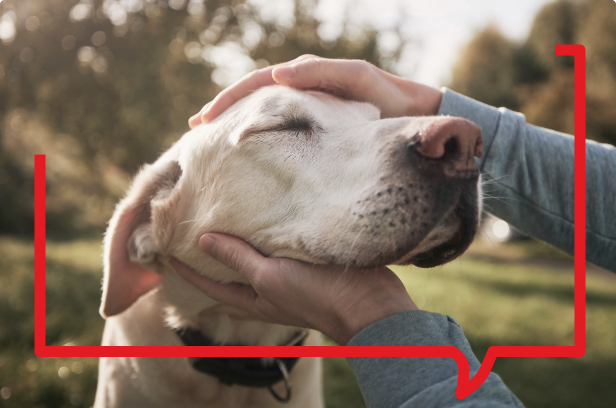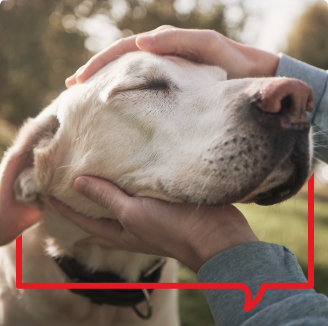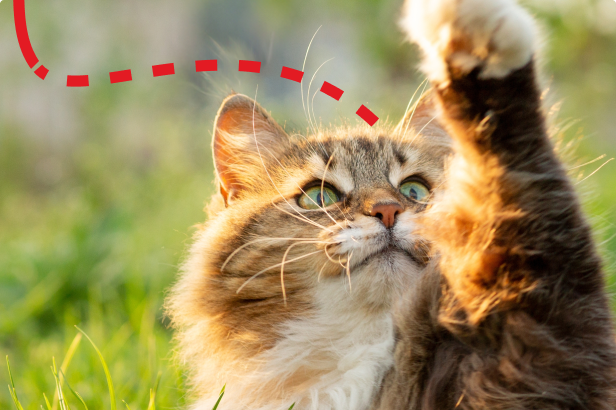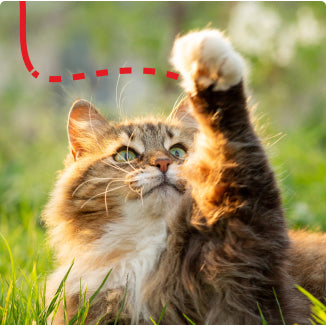Natural, clinically proven joint and
mobility support pets deserve.
Clinically Proven
Works Better & Faster*
PATENTED FORMULA
NATURAL & SUSTAINABLY SOURCED INGREDIENTS
Clinically Proven
Works Better & Faster*
PATENTED FORMULA
NATURAL & SUSTAINABLY SOURCED INGREDIENTS
Clinically Proven
Works Better & Faster*
PATENTED FORMULA
NATURAL & SUSTAINABLY SOURCED INGREDIENTS
Clinically Proven
Works Better & Faster*
PATENTED FORMULA
NATURAL & SUSTAINABLY SOURCED INGREDIENTS
Clinically Proven
Works Better & Faster*
PATENTED FORMULA
NATURAL & SUSTAINABLY SOURCED INGREDIENTS
Clinically Proven
Works Better & Faster*
PATENTED FORMULA
NATURAL & SUSTAINABLY SOURCED INGREDIENTS
Clinically Proven
Works Better & Faster*
PATENTED FORMULA
NATURAL & SUSTAINABLY SOURCED INGREDIENTS
Clinically Proven
Works Better & Faster*
PATENTED FORMULA
NATURAL & SUSTAINABLY SOURCED INGREDIENTS
Clinically Proven
Works Better & Faster*
PATENTED FORMULA
NATURAL & SUSTAINABLY SOURCED INGREDIENTS
Clinically Proven
Works Better & Faster*
PATENTED FORMULA
NATURAL & SUSTAINABLY SOURCED INGREDIENTS
Clinically Proven
Works Better & Faster*
PATENTED FORMULA
NATURAL & SUSTAINABLY SOURCED INGREDIENTS
Clinically Proven
Works Better & Faster*
PATENTED FORMULA
NATURAL & SUSTAINABLY SOURCED INGREDIENTS
Clinically Proven
Works Better & Faster*
PATENTED FORMULA
NATURAL & SUSTAINABLY SOURCED INGREDIENTS
Clinically Proven
Works Better & Faster*
PATENTED FORMULA
NATURAL & SUSTAINABLY SOURCED INGREDIENTS
Clinically Proven
Works Better & Faster*
PATENTED FORMULA
NATURAL & SUSTAINABLY SOURCED INGREDIENTS
Clinically Proven
Works Better & Faster*
PATENTED FORMULA
NATURAL & SUSTAINABLY SOURCED INGREDIENTS
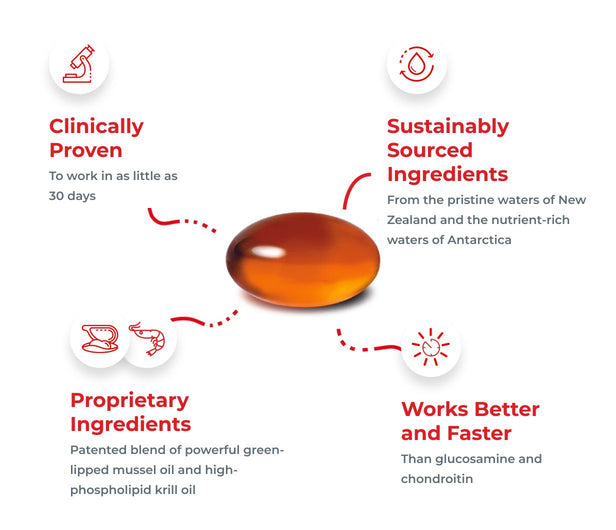
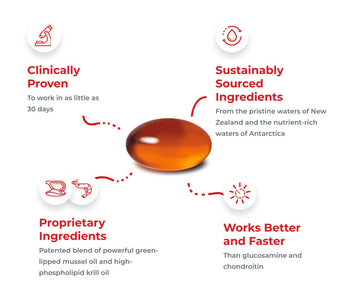
Potent Ingredients, Proven Results.
Antinol®Plus is joint care that works as hard as your pet plays. Backed by 40 years of research and three double-blind clinical trials, this natural, clinically proven formula delivers faster results than glucosamine and chondroitin - because your pet deserves nothing but the best.
Shop NowHarnessing the Power of Nature.
From the pure waters of New Zealand and Antarctica comes a breakthrough in joint care. Antinol Plus combines green-lipped mussel oil and Antarctic krill oil in a potent, natural formula that's as clean and pure as the waters it's sourced from.
Shop Now20 Years of Human Expertise, now for Pets.
From Great HealthWorks - leaders in premium human supplements for over 20 years - comes the same trusted care for your pets' joint and mobility health.
What that means:
Manufactured
in USA from Globally Sourced Ingredients

FDA Registered
Facility

Strictest Quality
Guidelines

Nationwide
Distribution
What Every Pet Parent Deserves:
Every pet deserves the best, which is why our supplements are crafted under strict manufacturing standards and proudly bear the NASC Quality Seal. From ingredient transparency to rigorous quality standards, we ensure your pet gets safe, effective support you can trust.
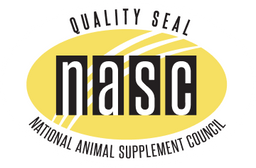
Look for the Seal

Quality Assurance

Ingredient Transparency

Regulatory Compliance
See for Yourself!
What other satisfied pet parents are saying:
It was an excellent product
It was an excellent product for
my 11 year old German
Shepherd. She was able to
enjoy a few more years with us,
without having back issues for a
more time than we thought she
would have.
Marcia C.
Improvement in pain
management
Good improvement in pain
management after 1ˢᵗ 30 days.
Reordering for sure!
Cristi S.
Helps keep the pep
Antinol Plus helps keep the pep
in my 13 year old Corgi's step.
Still playing agility games.
Happy doggie.
Anna P.
Bark & Learn
Explore valuable tips, advice,
and insights into pet health and wellness.
Dog Joint Pain Relief: 5 Ideas That Could Help Your Pup
Dog joint discomfort is frustrating — not just for them, but for you, too. One day, they’re zooming across the yard, and the next, they’re hesitating before jumping on the couch. It’s hard to watch and even harder to know exactly what to do about it. At Pet HealthWorks, we focus on practical, science-backed ways to support your dog’s mobility, whether they’re slowing down with age or just dealing with everyday wear and tear. The right approach can make a real difference, and it doesn’t have to be complicated. Interested in discovering more? We have you covered. Read on as we break down what joint discomfort looks like, what causes it, and the most effective ways to help your dog stay comfortable and active. What Are the Signs of Joint Discomfort in Dogs? Dogs are tough, and they don’t always show discomfort the way humans do. That’s why joint issues can sneak up on pet parents. The changes can be subtle at first, but over time, these signs can become more noticeable, making it clear that something isn’t right. Changes in Movement One of the first signs of joint discomfort is a shift in how your dog moves. You might notice: Limping or favoring a leg: This could be subtle at first, like a slight hesitation before walking after a nap. Stiffness, especially in the morning or after rest: If your dog takes a few steps before they loosen up, joint discomfort could be the reason. Reluctance to jump or climb stairs: Struggling to hop onto the couch or hesitating at the bottom of the stairs are common red flags. Changes in Behavior Joint discomfort doesn’t just affect movement — it can change your dog’s entire mood. Some dogs become withdrawn, others get cranky, and some just seem “off.” Watch for: Irritability or uncharacteristic aggression: A normally friendly dog might snap when touched in a sore area. Less enthusiasm for walks or playtime: A dog that used to sprint for the leash but now needs coaxing might not just be tired. Excessive licking or chewing: Dogs instinctively try to soothe discomfort by licking sore spots, especially around joints. Physical Signs In some cases, joint discomfort comes with visible changes in the body, such as: Swollen joints: If a joint looks puffy or feels warm to the touch, inflammation could be at play. Muscle loss: Dogs experiencing discomfort tend to use certain legs less, which can lead to weaker muscles over time. What Causes Joint Discomfort in Dogs? We talked about the signs, but what actually causes joint discomfort in dogs? A big one is wear and tear over time. As dogs age, the cartilage in their joints starts to break down, making movement stiff and uncomfortable. This happens to all dogs eventually, but bigger breeds feel it sooner since their joints take on more stress. Genetics also play a role. Some dogs, like Labradors and German Shepherds, are simply more prone to joint issues. Past injuries — like a rough landing or too much high-impact activity — can also lead to long-term discomfort, even if your dog seemed fine at the time. Extra weight makes things worse by putting more pressure on already stressed joints. And in some cases, underlying health conditions contribute, too. No matter the cause, understanding where joint discomfort comes from is the first step in helping your dog stay comfortable and mobile. What Are Some Ideas To Help Relieve Joint Discomfort in Dogs? Wondering how to help your dog move more comfortably? There are plenty of ways to support mobility and ease discomfort — here are some of them. 1. Maintain a Healthy Weight What your dog eats (and how much) plays a big role in joint health. One of the easiest ways to help protect your dog’s joints? Keep them at a healthy weight. Extra pounds might not seem like a big deal, but even a little added weight puts more pressure on your dog’s joints, especially in the hips, knees, and spine. Over time, that added strain can speed up cartilage breakdown and make everyday movements harder and more painful. Staying lean doesn’t just help prevent joint problems but also makes it easier for dogs already dealing with discomfort to move more freely. Plus, healthy weight often means better energy levels, so your dog can stay active, strong, and happy for the long haul. 2. Make Their Environment Joint-Friendly If your dog struggles to get up and down, small home adjustments can make a big difference. Orthopedic dog beds provide extra cushioning for achy joints, while rugs or non-slip mats can help prevent slipping on hard floors. If they’re hesitant to jump on furniture or get in the car, a pet ramp or stairs can reduce stress on their joints. For dogs that love cozying up on the couch, a supportive bolster bed near their favorite spot might become their new go-to. 3. Add Joint Supplements to Their Routine Even with the right diet and exercise, some dogs need extra joint support. That’s where joint supplements for dogs come in. Antinol Plus is a science-backed option made with green-lipped mussel oil and krill oil, which provide essential fatty acids and specialized compounds that help maintain mobility. Unlike traditional fish oil, the proprietary blend in Antinol Plus is designed to be more bioavailable, meaning your dog’s body can absorb and use it more efficiently. What’s more, clinical studies show improvements in mobility in as little as 30 days. 4. Help Them Recover After Activity If your dog has a big day — whether it’s a long walk, an afternoon at the park, or an unexpected burst of zoomies — helping them recover properly can minimize soreness. Gentle stretching, light massage, or even a warm compress on stiff areas can provide relief. Keeping their activity levels consistent, rather than alternating between long periods of rest and intense bursts of exercise, also helps keep their joints from becoming overly stiff. 5. Alternative Options for Joint Discomfort When it comes to easing joint discomfort, movement done the right way can make a big difference. Gentle massage helps relax tight muscles and improve circulation around sore joints, giving your dog some much-needed relief. Physical therapy and laser therapy go a step further by targeting inflammation, rebuilding strength, and improving mobility over time. And if your dog loves the water, hydrotherapy is a great low-impact option that lets them move freely without putting stress on their joints. These hands-on approaches aren’t just about comfort. They’re about helping your dog stay active, mobile, and feeling like themselves again. A Final Word Every dog is different, but small changes like better nutrition, low-impact exercise, and the right support can go a long way. If your dog’s discomfort seems to be getting worse or they’re struggling more than usual, it’s best to check in with your vet. Joint issues can progress over time, and catching them early makes a big difference in keeping your pup happy and active. At Pet HealthWorks, we know how much you care about your dog’s health. That’s why we created Antinol Plus — a trusted joint supplement backed by science. Thousands of pet parents have already made it part of their dog’s routine, and if you’re looking for extra support, it’s a great place to start. Sources: AKC Canine Health Foundation | Managing Canine Arthritis Osteoarthritis in Dogs | American College of Veterinary Surgeons How Can Joint Supplements Help Dogs With Arthritis? | American Kennel Club Seven Foods to Help You Fight Arthritis | Penn MedicineHow To Help a Dog With Arthritis at Home
Arthritis is a common condition in dogs, especially as they age. It causes joint inflammation, stiffness, and pain, which can make everyday movements difficult. While arthritis can’t be cured, there are many ways to help manage your dog’s joint discomfort at home. Simple adjustments — modifying their environment, providing joint-supporting nutrition, and incorporating gentle exercise — can significantly improve their quality of life. At Pet HealthWorks, we believe understanding your dog’s needs and making proactive changes can help them stay active, comfortable, and happy for as long as possible. How Can You Recognize Arthritis in Dogs? Arthritis in dogs often develops gradually, making it easy to overlook the early signs. Common symptoms include stiffness, limping, difficulty getting up or lying down, reluctance to jump or climb stairs, and a noticeable decrease in activity. Some dogs may also show irritability, licking of sore joints, or changes in posture. Certain factors increase a dog’s risk of arthritis, including aging, obesity, joint injuries, and breed predisposition (such as Labrador Retrievers, German Shepherds, and Golden Retrievers). If you notice these symptoms, it’s important to consult your veterinarian for an accurate diagnosis and treatment plan. Early intervention can make a significant difference in slowing arthritis progression. Monitoring your dog’s mobility, weight, and behavior will help you catch changes sooner. What Steps Should You Take To Create a Dog-Friendly Home? Even without a diagnosis of arthritis, many senior dogs may experience joint discomfort. Making your home more accessible and comfortable for an older dog can greatly improve their quality of life, and it’s not too hard to do. Since joint discomfort makes movement difficult, simple modifications can help reduce strain. Start by providing soft, orthopedic bedding to support their joints and minimize pressure points. Elevated beds or cushioned mats can also help dogs get up and down more easily. Place non-slip rugs or carpet runners on slippery surfaces like tile or hardwood floors to prevent slips and falls, which can worsen joint pain. Minimize the need for excessive jumping by using pet ramps or stairs for beds, couches, or cars. Raised food and water bowls can also make mealtime more comfortable for dogs experiencing stiffness in their neck or front legs. Consider adjusting their living space by keeping essentials (like their bed, food, and water) on the ground floor to reduce the need for climbing stairs. If your dog struggles with cold weather, keeping them warm with a sweater or heating pad can also help ease stiffness. When you make these small yet impactful changes, you can create a safer and more supportive environment, helping your dog maintain their independence and mobility despite joint discomfort. How Can You Support Joint Health With Nutrition and Supplements? Maintaining a healthy weight is a key factor in managing discomfort. Excess weight puts additional stress on joints, worsening pain and mobility issues. Feeding an appropriate portion size and choosing a high-quality diet rich in lean proteins, healthy fats, and essential nutrients can help keep your dog at a healthy weight. Proper nutrition also plays a crucial role in managing discomfort and supporting your dog’s joint health. A well-balanced diet with anti-inflammatory ingredients can help reduce stiffness and promote overall well-being. Omega-3 fatty acids are known for their anti-inflammatory properties and can help soothe joint discomfort. A dog joint health supplement that has Omega-3s can help maintain mobility and soothe joint discomfort in dogs. Can All Joint Supplements Deliver the Same Results? There are many joint supplements on the market, including fish oil supplements that contain omega-3s and traditional glucosamine/chondroitin supplements. However, Antinol Plus is a superior option to traditional joint supplements for several reasons. First, Antinol Plus is not in the same category as traditional joint supplements — it’s made from New Zealand green lipped mussel oil and Antarctic krill oil. Second, Antinol Plus is superior to traditional supplements because it delivers powerful joint and mobility support in a much smaller, more concentrated dose. Unlike many joint products, Antinol Plus is clinically studied, with studies proving its effectiveness in improving mobility in as little as 30 days. Its ingredient purity and transparency ensure that what you buy is exactly what was studied. Make sure to always consult your veterinarian before introducing new supplements or dietary changes to ensure they suit your dog’s specific needs. A tailored nutrition plan can make a significant difference in keeping your dog comfortable and active. What Are Gentle Exercise and Mobility Support Options for Older Dogs? Regular, low-impact exercise is essential for managing joint discomfort in dogs because it helps keep their muscles strong and joints flexible without causing additional strain. Activities like walking, swimming, or gentle play sessions are ideal for dogs with arthritis. Swimming is especially beneficial because it provides a full-body workout while being easy on the joints due to the buoyancy of water. Be sure to adjust the intensity and duration of exercise based on your dog’s age, breed, and severity of discomfort. Short, frequent walks are often better than longer, strenuous sessions. Avoid high-impact activities like running on hard surfaces or excessive jumping, which could worsen joint pain. Providing mobility support, like joint braces or slings for older or severely affected dogs, can assist in movement during walks or bathroom trips. Also, stretching exercises can improve flexibility and range of motion. Regular, gentle exercise can help manage discomfort and maintain your dog’s mobility, allowing them to remain active and engaged in daily life. How Can You Keep Your Arthritic Dog Comfortable? Ensuring your dog’s comfort is paramount when managing joint issues. Start by providing an orthopedic bed that offers ample support to alleviate joint pressure while they sleep. Memory foam or cushioned beds are ideal because they relieve pressure on painful joints. Keep your dog warm during colder months. Chilly temperatures can exacerbate joint discomfort, so consider using a dog sweater or heating pad for extra warmth and comfort. It’s also important to create a stress-free environment. Ensure your dog has easy access to their food, water, and bathroom areas, eliminating the need for unnecessary movement. Keeping your dog on a routine schedule for meals and bathroom breaks can help reduce anxiety and discomfort. Lastly, gentle massages and physical therapy can provide added comfort by increasing blood circulation and relieving stiffness. Regularly monitor your dog for signs of discomfort, and adjust their care routine to make them as comfortable as possible. Wrapping Up Managing joint discomfort in dogs requires a comprehensive approach that includes a supportive environment, proper exercise, and nutritional support. By creating a dog-friendly home, incorporating joint supplements like Antinol Plus, and keeping them comfortable, you can significantly improve your dog’s quality of life. Regular care and attention will help them stay active, comfortable, and happy despite their joint issues. Sources: Prevalence, duration and risk factors for appendicular osteoarthritis in a UK dog population under primary veterinary care | NIH Risk Factors for Canine Osteoarthritis and Its Predisposing Arthropathies: A Systematic Review | Frontiers Clinical evaluation of an antiinflammatory and antioxidant diet effect in 30 dogs affected by chronic otitis externa: preliminary results | NIH Is Swimming Therapeutic for Senior Dogs? | American Kennel ClubGreen Lipped Mussel for Dogs: Natural Mobility Supplement Super Ingredient
Discover the benefits of green-lipped mussel for dogs, a natural supplement that supports and maintains mobility and joint health in dogs.@antinolplus






